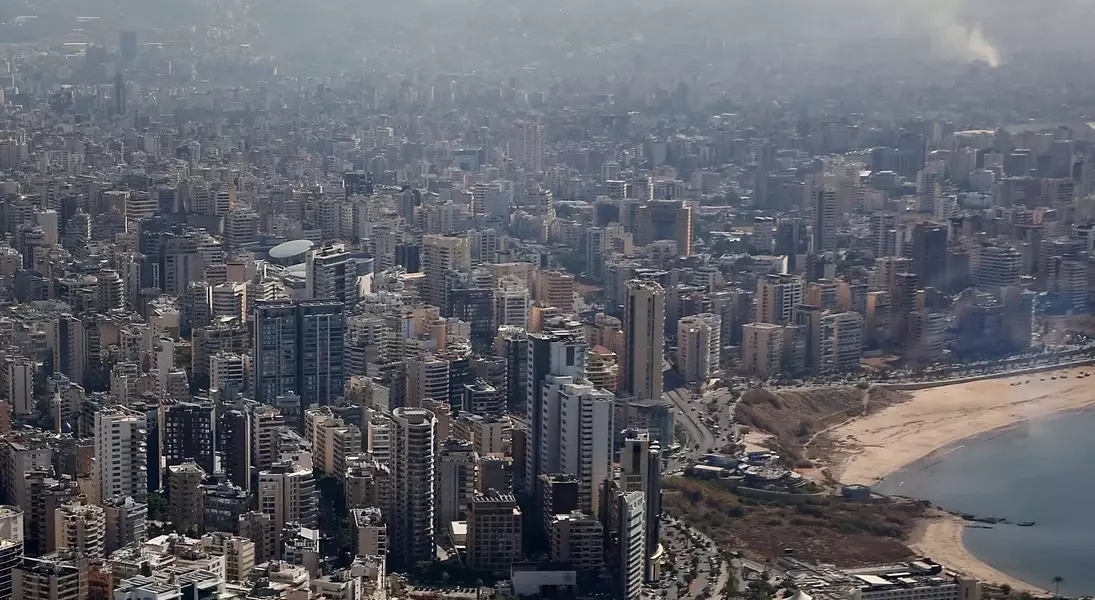The global anti-money laundering watchdog, the Financial Action Task Force (FATF), has added Lebanon to its "grey list" of nations subject to increased monitoring of financial transactions. This move comes as Lebanon grapples with a severe economic and financial crisis, further exacerbated by the ongoing conflict with Israel. The decision by the FATF could have far-reaching implications for Lebanon's already fragile economy and its relationship with the global financial system.
Uncovering the Complexities of Lebanon's Financial Troubles
A Deepening Crisis Amidst Geopolitical Tensions
Lebanon's financial crisis has been brewing since 2019, with the country's leaders failing to address the underlying issues. The situation has only worsened, with the country now facing the added burden of Israeli air strikes and ground operations against the Lebanese armed group Hezbollah. This volatile geopolitical landscape has further complicated Lebanon's efforts to stabilize its economy and financial system.The grey-listing by the FATF could potentially deter foreign investment in Lebanon, as it signals heightened concerns about the country's ability to combat money laundering and terrorist financing. This could have a ripple effect on the relationship between Lebanese banks and the global financial system, potentially limiting their access to international markets and transactions.The Implications of Grey-Listing: A Double-Edged Sword
While the FATF has emphasized that the grey-listing is not a "punitive measure," but rather a process to help nations develop action plans for improvement, the consequences can be far-reaching. The increased monitoring and scrutiny of financial transactions could disrupt the flow of humanitarian aid and relief efforts, which are crucial for a country facing such a grave economic and social crisis.However, the FATF has also stated that the grey-listing should not impede relief efforts, and they are working to ensure that channels of humanitarian aid remain open. This delicate balance highlights the complex nature of the situation and the need for a nuanced approach to address Lebanon's financial woes.Lessons from Senegal's Removal from the Grey List
The FATF's decision to remove Senegal from the grey list provides a glimmer of hope for Lebanon. Senegal's successful efforts to improve its ability to investigate and prosecute money laundering cases linked to corruption demonstrate that with the right reforms and commitment, a country can overcome the challenges of grey-listing.This example underscores the importance of Lebanon's leaders taking decisive action to address the root causes of the country's financial crisis and implement the necessary reforms to combat money laundering and terrorist financing. By doing so, Lebanon may be able to regain the trust of the global financial community and pave the way for a more stable and prosperous future.The Global Implications: A Cautionary Tale for the International Financial System
The addition of Lebanon to the FATF's grey list is not just a matter of concern for the country itself, but also for the broader global financial system. As a hub for international financial transactions, the stability and integrity of Lebanon's financial sector have far-reaching implications.The FATF's decision serves as a stark reminder that no country is immune to the risks of money laundering and terrorist financing. It highlights the need for a coordinated and proactive approach to addressing these issues, not just within individual nations, but across the global financial landscape.The case of Lebanon underscores the importance of robust regulatory frameworks, effective enforcement, and a commitment to transparency and accountability within the financial sector. As the international community grapples with the challenges posed by Lebanon's financial crisis, it is a cautionary tale that serves as a wake-up call for all nations to strengthen their efforts to safeguard the integrity of the global financial system.You May Like

